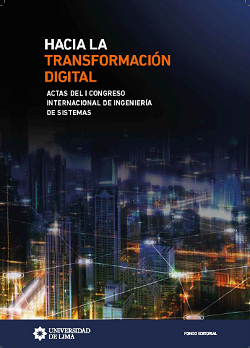A collaborative approach for solving the university course timetabling problem
DOI:
https://doi.org/10.26439/ciis2018.5486Keywords:
timetabling, heuristic methods, courses, collaborative applicationsAbstract
This work proposes a collaborative approach for solving the university course timetabling problem (UCTP). A prototype was developed and used for a computer science
course at the Federal Fluminense University in Brazil. The main idea is that students, professors, and course coordinators contribute collaboratively to course timetabling through an app. These contributions employ heuristics, which is responsible for timetabling to improve the solution to the problem. Results and future works are described herein.
Downloads
References
Abdullah, S., & Turabieh, H. (2008, November). Generating university course timetable using genetic algorithms and local search. In Convergence and Hybrid Information Technology, 2008. ICCIT’08. Third International Conference on (Vol. 1, pp. 254-260). IEEE.
Al-Betar, A., & Khader, A. T. (2012). A harmony search algorithm for university course timetabling. Ann Oper Res, 194, 3-31.
Aladag, C. H., Hocaoglu, G., & Basaran, M. A. (2009). The effect of neighborhood structures on tabu search algorithm in solving course timetabling problem. Expert Systems with Applications, 36, 12349-12356.
Babaei, H., Karimpour, J., & Hadidi, A. (2015). A survey of approaches for university course timetabling problem. Computers & Industrial Engineering, 86, 43-59. Retrieved from http://www.sciencedirect.com/science/article/pii/S0360835214003714 DOI: https://doi.org/10.106/j.cie.2014.11.010
Lima, T. J. B., Martins, C. B., Vianna, D. S., Dianin, M. F. V., & Costa, S. O. (2015). Utilização do método de análise hierárquica (ahp) para definição dos pesos de restrições fracas na re- solução de problemas de programação de horários para uma instituição federal de ensino superior. In Simpósio brasileiro de pesquisa operacional (pp. 1-12).
Pandey, J., & Sharma, A. K. (2016). Survey on university timetabling problem. In 3rd international conference on computing for sustainable global development (indiacom) (pp. 1-64). IEEE. Retrieved from https://ieeexplore.ieee.org/document/7724247/
Parte, Y., Auroux, D., Clément, J., Masmoudi, M., & Hermetz, J. (2013). Collaborative optimization. Multidisciplinary design optimization in computational mechanics, 321-367.
Schaerf, A. (1999). A survey of automated timetabling. Artificial Intelligence Review, 13, 87-127.
Song, T., Sanya, L., Tang, X., Peng, X., & Chen, M. (2018). An iterated local search algorithm for the university course timetabling problem. (To appear in Applied Soft Computing).
Yang, S., & Jat, S. N. (2011). Genetic algorithms with guided and local search strategies for university course timetabling. IEEE Transactions on Systems, Man, and Cybernetics- Part C: Applications and Reviews, 41 (1), 93-106.






